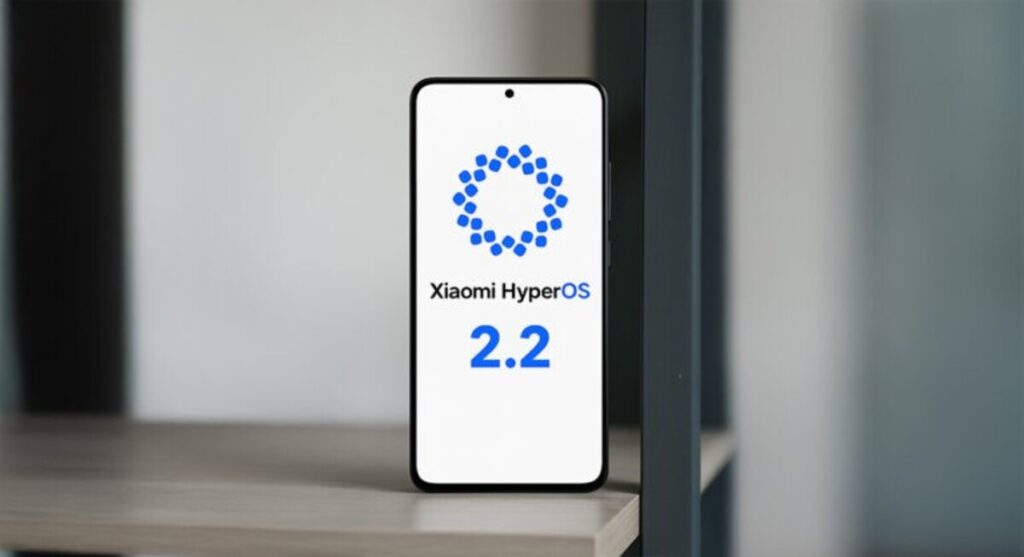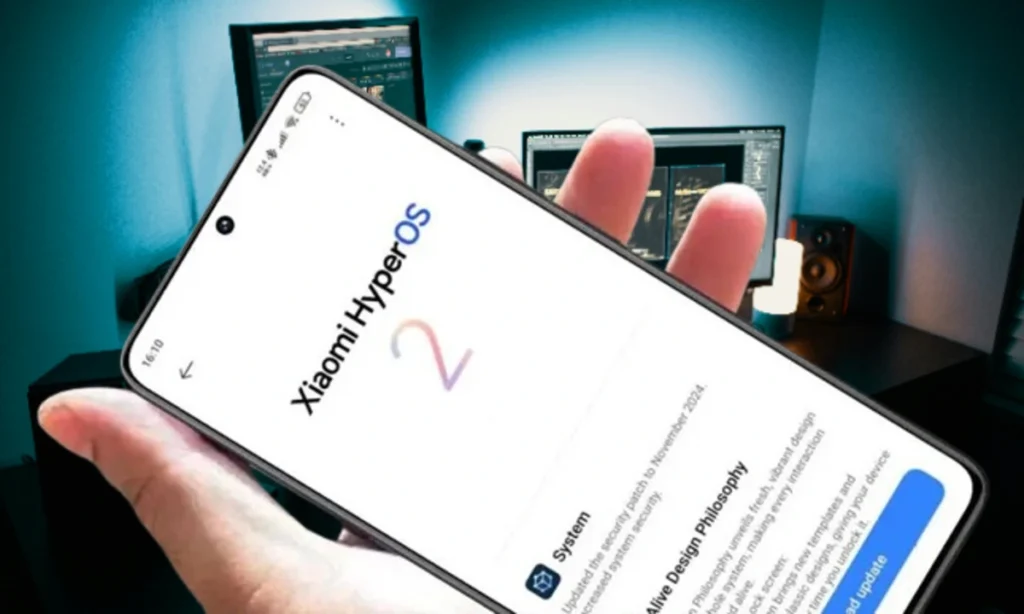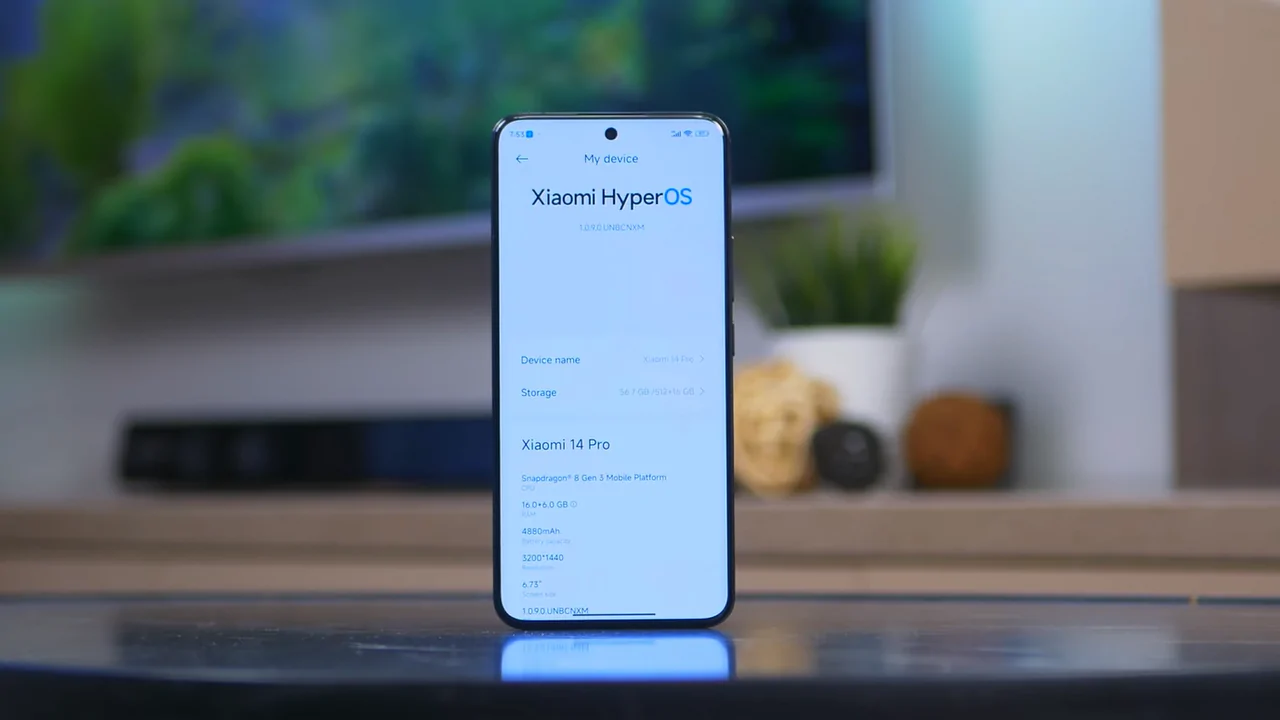Xiaomi HyperOS: Your Phone Updated in June? See the COMPLETE List of Models!
June 2025 was a busy month for Xiaomi phone users. Many people wondered if their phone would get the new update. The good news is that lots of Xiaomi, Redmi, and POCO phones received fresh updates during this month.
Xiaomi HyperOS brought important changes to phones around the world. From security fixes to new features, these updates made phones work better and safer. Let’s explore which phones got updated and what this means for you.

What is Xiaomi HyperOS and Why Should You Care?
Think of your phone like a house. The apps are like rooms, and the operating system is like the foundation that holds everything together. HyperOS is Xiaomi’s new foundation that makes your phone work smoother and faster.
HyperOS replaced the old MIUI system. It connects your phone better with other Xiaomi devices like tablets, TVs, and smart home gadgets. When you have HyperOS, your devices can share files easier and work together like a team.
The system gets regular updates to fix problems and add new features. These updates are like getting your house repaired and adding new rooms. They keep your phone running well and protect it from security threats.
How Xiaomi HyperOS Updates Work: The Three-Step Process
Understanding how updates reach your phone is simple. Xiaomi uses a three-step process to make sure updates work properly before everyone gets them.
Step 1: Beta Testing Phase
First, the update goes to special people called “beta testers.” These are users who signed up to test new features before everyone else. They help find small problems that need fixing. Anyone can become a beta tester by following a simple registration process.
Beta testers get updates weeks or even months before regular users. They try out new features and report any issues they find. This helps Xiaomi make the update better and safer for everyone.
Step 2: Limited Release
Next comes the limited release phase. This is where we were with many HyperOS updates in June. Not everyone gets the update automatically through the air. But experienced users can install it manually if they want to try the new features early.
This phase is like a preview for people who are excited about new updates. It allows Xiaomi to test the update with more people before releasing it to everyone.
Step 3: Full Public Release
Finally, the full public release happens. This is when everyone gets the update automatically on their phone. You simply wake up one day and see a notification about the new update ready to install.
This is the safest way to get updates because all the problems have been found and fixed. Most people should wait for this phase unless they really need the new features right away.
Understanding HyperOS Version Numbers
Looking at version numbers might seem confusing, but it’s actually quite simple. Each number tells you something specific about the update you’re getting.
Version Number Breakdown
- HyperOS 2.0: OS2.0.2.0 (the starting version)
- HyperOS 2.1: OS2.0.107.0 (current major update)
- HyperOS 2.2: OS2.0.207.0 (next big update)
- HyperOS 2.3: OS2.0.302.0 (final before HyperOS 3)
The pattern is easy to remember. Major updates always have three numbers after the decimal point. Numbers starting with 100 are from HyperOS 2.1, numbers starting with 200 are from HyperOS 2.2, and so on.
This system helps you quickly identify which version you have and whether a newer one is available. It’s like having a clear map of where your phone stands in the update journey.
Complete List of Devices Updated in June 2025
June 2025 was packed with HyperOS updates. Over 60 different device models received new software during this month. Here’s the complete breakdown of what happened:
Flagship Phones Leading the Way
The most expensive Xiaomi phones got updates first. The Xiaomi 15 series received multiple updates throughout June. The Xiaomi 15 got HyperOS 2.1 and even HyperOS 2.2 in some regions.
Other flagship phones like the Xiaomi 14 series also received important updates. The Xiaomi 14T Pro got its first taste of HyperOS 2.2, bringing new features and better performance.
Mid-Range Champions
Phones in the middle price range didn’t get left behind. The popular POCO F series received several updates. POCO F6, F5, and F7 models all got fresh software during June.
The Redmi Note series also saw lots of action. From the Redmi Note 12 to the newest Note 14 models, many phones got security patches and feature improvements.
Budget-Friendly Options
Even the most affordable phones got attention. The Redmi 13 series and older models like the Xiaomi 11 Lite NE 5G received updates. This shows Xiaomi cares about all users, not just those with expensive phones.
Regional Differences in Update Rollout
Updates don’t reach everyone at the same time. Different regions get updates on different schedules based on local testing and approval processes.
Europe Takes the Lead
European users often get updates first or very early. Many HyperOS 2.2 updates started in Europe before spreading to other regions. This includes countries like Germany, France, and the UK.
Global Rollouts Follow
After Europe, updates typically spread to the global market. These are phones sold internationally that work in many countries. Global versions often come a few days or weeks after European releases.
Regional Variations
Some regions like India, Taiwan, and Russia get their own specific versions. These might have different features or timing based on local requirements and partnerships.
Key Features in June 2025 Updates
The updates released in June brought several important improvements to Xiaomi phones. These weren’t just small fixes but meaningful changes that users could notice.
Enhanced Security
Security patches were a major focus of June updates, with devices receiving the latest Android security improvements. These patches protect your phone from new threats that hackers might try to use.
Better Performance
Many users reported smoother performance after installing June updates. Apps opened faster, and phones felt more responsive during daily use. This is especially noticeable on older devices that got optimized code.
Camera Improvements
Several updates included camera enhancements, making photo and video quality better. Night mode got improvements, and portrait photos became more accurate.
Connectivity Features
File sharing between Xiaomi devices became more seamless, with faster transfers between different Xiaomi accounts. Device pairing also got easier with improved connection pop-ups.

What’s Coming Next: HyperOS 2.2 and Beyond
June 2025 marked the beginning of HyperOS 2.2 rollout for select devices. This major update brings significant changes that will affect how people use their phones.
Advanced AI Features
HyperOS 2.2 includes smarter AI that learns from how you use your phone. It can predict which apps you’ll need and prepare them in advance. This makes your phone feel faster and more responsive.
Cross-Device Integration
The new HyperMind feature lets you use your voice to control your phone more naturally. You can ask your phone to do things without touching the screen, making it easier to multitask.
Future Timeline
Stable HyperOS 2.2 updates are expected to continue rolling out through July 2025 for additional devices. More phones will get these advanced features in the coming months.
Contextualizing the Evolution: From HyperOS 2.0 to Future Versions
The rapid development of Xiaomi’s HyperOS ecosystem reflects the company’s commitment to continuous innovation. HyperOS 2.0 launched on October 29, 2024, and became available worldwide by May 2025, representing a 100% advancement over the original HyperOS. This progression demonstrates how quickly mobile operating systems evolve to meet user needs.
The storage refresh capabilities introduced in HyperOS 2.0 have been further refined in subsequent versions. The HyperOS 2.1 update brought significant improvements to Xiaomi, Redmi, and POCO devices, while the global launch of HyperOS 2.2 represents the culmination of months of development and testing.
Performance Enhancements and Device-Specific Improvements
The June 2025 update cycle showcased Xiaomi’s device-specific optimization approach. Popular models like the Redmi Note 13 Pro Plus 5G received tailored HyperOS 2.2 implementations that maximized their hardware potential. The 7-day update window that Xiaomi implemented for critical devices ensured users received timely security patches and performance improvements.
The POCO X7 Pro’s global performance with HyperOS 2.2 exemplifies how these updates transform user experience across different price segments. Meanwhile, the early beta access program allowed enthusiasts to experience new features before official release, contributing to the overall stability of public releases.
Looking Ahead: The Next Generation of HyperOS
The foundation laid by June 2025 updates sets the stage for future innovations. With 9 devices receiving stable HyperOS 2.2 as of June, the momentum continues building toward HyperOS 3. The beta recruitment for HyperOS 2.3 alongside Android 16 development signals Xiaomi’s preparation for the next major evolution.
Early previews of HyperOS 3’s new interface design suggest a complete visual overhaul, while HyperOS 3’s integration with Android 16 promises to bring revolutionary features that will redefine smartphone interaction paradigms.
How to Check if Your Phone Got Updated
Checking whether your phone received a June update is straightforward. Here’s how to find out what version you’re running and whether newer updates are available.
Finding Your Current Version
Go to Settings on your phone. Look for “About phone” or “System information.” You’ll see your current HyperOS version number. Compare this with the list above to see if you have the latest update.
Checking for New Updates
In Settings, find “System update” or “Software update.” Tap on it to check if newer versions are available. Your phone will automatically search for updates and show you what’s available.
Manual Update Process
If you see an available update, tap “Download” or “Install.” Make sure your phone has enough battery (at least 50%) and good internet connection. The update will download and install automatically.
Troubleshooting Common Update Issues
Sometimes updates don’t install smoothly. Here are solutions to common problems that users face during the update process.
Update Not Appearing
If you don’t see the update that others in your region received, try these steps:
- Clear the cache of your system update app
- Restart your phone and check again
- Make sure you have stable Wi-Fi connection
- Check if your phone has enough storage space
Update Stuck During Installation
If your update gets stuck, don’t panic. Wait at least 30 minutes before doing anything. Most updates eventually complete even if they seem frozen.
If it’s truly stuck, try restarting your phone by holding the power button. The update should resume automatically when your phone turns back on.
Battery and Storage Requirements
Updates need sufficient battery and storage to install properly. Keep your phone charged above 50% and ensure you have at least 3GB of free storage space before starting any update.
Tips for a Smooth Update Experience
Getting the best experience from your HyperOS updates requires some preparation. These tips will help ensure everything goes smoothly.
Before Updating
Always back up your important data before installing major updates. While updates rarely cause data loss, it’s better to be safe. Use Xiaomi’s built-in backup feature or cloud storage services.
During the Update
Don’t use your phone while updates are installing. This can cause problems or make the update take longer. Let your phone complete the process undisturbed.
After Updating
After an update finishes, restart your phone once more. This ensures all changes take effect properly. Check your apps to make sure everything works as expected.
Complete Device Update Table
| Device | HyperOS Version | Android Version | Region | Update Date |
|---|---|---|---|---|
| Xiaomi 15 | 2.1 (2.0.109.0) | 15 | Europe | June 2, 2025 |
| POCO F6 | 2.1 (2.0.103.0) | 15 | Russia | June 3, 2025 |
| POCO F6 | 2.1 (2.0.103.0) | 15 | Taiwan | June 3, 2025 |
| Xiaomi 15 Ultra | 2.1 (2.0.106.0) | 15 | Global | June 3, 2025 |
| Redmi Note 13 5G | 2.0 (2.0.7.0) | 15 | Global | June 4, 2025 |
| Redmi Note 13 Pro 5G | 2.0 (2.0.11.0) | 15 | Europe | June 4, 2025 |
| Redmi Note 12 5G | 2.0 (2.0.3.0) | 14 | Global | June 5, 2025 |
| POCO X5 Pro 5G | 2.0 (2.0.4.0) | 14 | Europe | June 5, 2025 |
| POCO X5 Pro 5G | 2.0 (2.0.4.0) | 14 | Global | June 5, 2025 |
| POCO X5 Pro 5G | 2.0 (2.0.4.0) | 14 | India | June 5, 2025 |
| Redmi Note 12 4G NFC | 2.0 (2.0.3.0) | 15 | Indonesia | June 6, 2025 |
| Xiaomi 12 | 2.0 (2.0.4.0) | 15 | Global | June 8, 2025 |
| Xiaomi 15 | 2.1 (2.0.114.0) | 15 | Global | June 9, 2025 |
| Xiaomi 14 | 2.1 (2.0.106.0) | 15 | Russia | June 9, 2025 |
| Xiaomi 14T Pro | 2.1 (2.0.101.0) | 15 | Japan | June 10, 2025 |
| Redmi Note 14 5G | 2.0 (2.0.5.0) | 15 | India | June 10, 2025 |
| POCO F5 | 2.0 (2.0.4.0) | 15 | Taiwan | June 10, 2025 |
| Xiaomi 11 Lite NE 5G | 2.0 (2.0.3.0) | 14 | Europe | June 11, 2025 |
| Xiaomi 11 Lite NE 5G | 2.0 (2.0.3.0) | 14 | Russia | June 11, 2025 |
| Xiaomi 11 Lite NE 5G | 2.0 (2.0.3.0) | 14 | Taiwan | June 11, 2025 |
| Redmi Note 12 | 2.0 (2.0.12.0) | 15 | Global | June 12, 2025 |
| Redmi Note 14 5G | 2.0 (2.0.5.0) | 15 | India | June 12, 2025 |
| Xiaomi 11 Lite NE 5G | 2.0 (2.0.3.0) | 14 | India | June 12, 2025 |
| Xiaomi 14 | 2.1 (2.0.107.0) | 15 | Europe | June 13, 2025 |
| Xiaomi 14 | 2.1 (2.0.105.0) | 15 | Indonesia | June 13, 2025 |
| POCO F5 | 2.0 (2.0.4.0) | 15 | India | June 13, 2025 |
| POCO F5 | 2.0 (2.0.5.0) | 15 | Global | June 13, 2025 |
| POCO F5 | 2.0 (2.0.4.0) | 15 | Indonesia | June 13, 2025 |
| Redmi Note 14 4G | 2.0 (2.0.4.0) | 15 | Global | June 13, 2025 |
| POCO F7 Ultra | 2.1 (2.0.110.0) | 15 | Global | June 14, 2025 |
| Redmi Note 13 5G | 2.0 (2.0.6.0) | 15 | Europe | June 14, 2025 |
| Redmi Note 12 | 2.0 (2.0.12.0) | 15 | Global | June 16, 2025 |
| POCO X6 Pro | 2.1 (2.0.103.0) | 15 | India | June 16, 2025 |
| Redmi Note 13 Pro 4G | 2.0 (2.0.7.0) | 15 | Global | June 16, 2025 |
| POCO X7 Pro | 2.1 (2.0.103.0) | 15 | India | June 17, 2025 |
| Redmi Note 14 Pro 5G | 2.0 (2.0.5.0) | 15 | India | June 17, 2025 |
| Xiaomi 13 | 2.0 (2.0.105.0) | 15 | Europe | June 18, 2025 |
| Xiaomi 12T Pro | 2.0 (2.0.4.0) | 15 | Europe | June 18, 2025 |
| Xiaomi 13 Ultra | 2.1 (2.0.105.0) | 15 | Global | June 19, 2025 |
| Redmi Note 13 | 2.0 (2.0.12.0) | 15 | Global | June 19, 2025 |
| Xiaomi 13 Pro | 2.1 (2.0.109.0) | 15 | Europe | June 19, 2025 |
| Redmi Note 12 5G | 2.0 (2.0.5.0) | 14 | India | June 20, 2025 |
| POCO F5 | 2.0 (2.0.3.0) | 15 | Europe | June 20, 2025 |
| Redmi 12 5G | 2.0 (2.0.9.0) | 15 | Global | June 20, 2025 |
| Redmi Note 13 Pro+ 5G | 2.2 (2.0.201.0) | 15 | Europe | June 20, 2025 |
| Redmi 12 5G | 2.0 (2.0.9.0) | 15 | India | June 21, 2025 |
| Xiaomi 11 Lite NE 5G | 2.0 (2.0.3.0) | 14 | India | June 21, 2025 |
| Redmi Note 14 Pro 5G | 2.0 (2.0.7.0) | 15 | Global | June 21, 2025 |
| POCO X7 Pro | 2.2 (2.0.201.0) | 15 | Europe | June 23, 2025 |
| Xiaomi 15 | 2.2 (2.0.201.0) | 15 | Europe | June 23, 2025 |
| Redmi Note 14 Pro 5G | 2.2 (2.0.202.0) | 15 | Europe | June 23, 2025 |
| Redmi 13C 5G | 2.2 (2.0.201.0) | 15 | Europe | June 23, 2025 |
| Xiaomi 15 Ultra | 2.2 (2.0.202.0) | 15 | Europe | June 23, 2025 |
| Redmi 13 | 2.2 (2.0.201.0) | 15 | Europe | June 23, 2025 |
| Redmi Note 13 Pro 5G | 2.0 (2.0.12.0) | 15 | Europe | June 23, 2025 |
| POCO F7 Pro | 2.2 (2.0.202.0) | 15 | Europe | June 23, 2025 |
| Redmi Note 14S | 2.2 (2.0.202.0) | 15 | Europe | June 23, 2025 |
| Xiaomi 14 | 2.1 (2.0.108.0) | 15 | Europe | June 24, 2025 |
| Xiaomi 13T | 2.2 (2.0.202.0) | 15 | Europe | June 24, 2025 |
| Redmi Note 12 Pro 4G | 1.0 (1.0.19.0) | 13 | Global | June 24, 2025 |
| Xiaomi 14T Pro | 2.2 (2.0.202.0) | 15 | Global | June 24, 2025 |
| POCO X6 Pro | 2.2 (2.0.201.0) | 15 | Europe | June 24, 2025 |
| Xiaomi 14T | 2.2 (2.0.203.0) | 15 | Europe | June 25, 2025 |
| POCO F7 | 2.1 (2.0.101.0) | 15 | Taiwan | June 25, 2025 |
| POCO F7 | 2.1 (2.0.101.0) | 15 | Russia | June 25, 2025 |
| POCO F7 | 2.1 (2.0.101.0) | 15 | Indonesia | June 25, 2025 |
| Redmi Note 12 | 2.0 (2.0.12.0) | 15 | Global | June 26, 2025 |
| POCO F5 Pro | 2.0 (2.0.9.0) | 15 | Global | June 26, 2025 |
| Xiaomi 13T | 2.2 (2.0.202.0) | 15 | Europe | June 27, 2025 |
| POCO X6 Pro | 2.1 (2.0.104.0) | 15 | Russia | June 27, 2025 |
| POCO F7 | 2.2 (2.0.202.0) | 15 | Europe | June 27, 2025 |
| POCO F6 | 2.1 (2.0.104.0) | 15 | Taiwan | June 27, 2025 |
| Redmi 13C | 2.2 (2.0.201.0) | 15 | Europe | June 27, 2025 |
| Redmi Note 13 Pro+ 5G | 2.2 (2.0.201.0) | 15 | Europe | June 27, 2025 |
| Redmi Note 14 | 2.2 (2.0.202.0) | 15 | Europe | June 27, 2025 |
| Redmi Note 14 5G | 2.2 (2.0.202.0) | 15 | Europe | June 28, 2025 |
| Xiaomi 14T Pro | 2.2 (2.0.202.0) | 15 | Taiwan | June 29, 2025 |
Conclusion
June 2025 was a milestone month for Xiaomi HyperOS users worldwide. Over 60 device models received important updates, from security patches to major feature improvements. Whether you own a flagship Xiaomi 15, a popular POCO F series phone, or a budget-friendly Redmi device, chances are your phone benefited from these updates.
The rollout showed Xiaomi’s commitment to supporting devices across all price ranges and regions. From Europe to Asia, users received updates that made their phones safer, faster, and more capable. The introduction of HyperOS 2.2 for select devices also gave us a preview of what’s coming next.
If your phone didn’t receive an update in June, don’t worry. Xiaomi continues rolling out updates in waves, and your device will likely receive improvements in the coming months. Keep checking your system updates regularly, and make sure to install them when they arrive.
Remember that updates are designed to improve your phone experience. While they might seem like small changes, they often include important security fixes and performance improvements that keep your device running smoothly for years to come.
Key Takeaways
• Over 60 device models received HyperOS updates during June 2025, spanning flagship, mid-range, and budget categories • HyperOS 2.2 introduction marked a significant milestone with advanced AI features and improved cross-device integration • Regional rollout strategy prioritized Europe for initial releases, followed by global and region-specific versions • Security enhancements formed the backbone of most updates, protecting devices from emerging threats • Performance optimizations delivered noticeable improvements in app launch times and system responsiveness • Camera improvements enhanced photo and video quality across multiple device categories • Beta testing programs allowed enthusiasts early access while ensuring stable public releases • Future roadmap points toward HyperOS 3 development alongside Android 16 integration
This article was updated on June 29, 2025 with the latest information about HyperOS updates. For real-time updates, please follow Xiaomi’s official channels.
Written by the Expert: Valberth Vas
This article was carefully written by Valberth Vas, the expert behind TecnoVas Solution’s reviews and guides. With years of experience in the technology world and a keen eye on Xiaomi’s innovations, Valberth seeks to simplify the latest information for you.
Learn more about Valberth Vas and see more of his content here!

Valberth Vas, the expert behind TecnoVas Innovate, is the author of the company’s reviews and guides. His vast experience in the world of technology, with a particular focus on Xiaomi’s innovations, allows him to offer in-depth insights and clear guidance on the current technological landscape.

